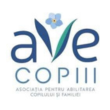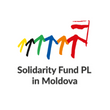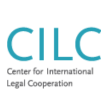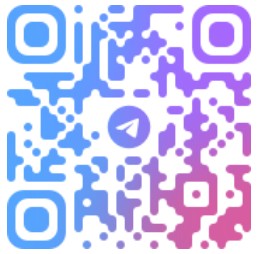Organizații vizate:
Achiziții de bunuri și contractări de servicii
- Detalii
- Categorie: Achiziție bunuri, Contractare Servicii
Tender for Conducting Research on the Inclusion of Ukrainian Refugees in Formal Education in the Republic of Moldova
Informațiile prezentate în articolul de mai jos pot să nu mai fie actuale sau să nu mai reflecte activitățile și programele curente. Anunțul este păstrat în arhivă pentru a asigura transparența și accesul public la informațiile despre inițiativele și proiectele implementate anterior.
Research on the Inclusion of Ukrainian Refugees in Formal Education in the Republic of Moldova
1. Background
Situation overview
The escalation of the conflict in Ukraine in 2022 caused a refugee situation leading approximately one million refugees to the Republic of Moldova. As of February 2025, records from UNHCR's Operational Data Portal indicate that over 120,000 refugees continue to reside in Moldova. This population includes 56,000 Ukrainian children, of whom fewer than 3,000 have been integrated into the formal education system—a proportion lower than that observed in neighboring hosting countries.
Refugee children, adolescents, and their guardians face barriers in inclusion into Moldova’s formal education framework. These challenges comprise, but not limited to linguistic divergences, bureaucratic processes, the limited capacity of educational institutions, and socioeconomic vulnerabilities. The formulation of data-driven policies and the implementation of targeted interventions are imperative to ensure equitable access, meaningful participation, and inclusivity in education.
Despite the availability of previous assessments on refugee education in the Republic of Moldova, a gap persists in understanding the barriers to educational inclusion from the perspective of Ukrainian refugees. Existing studies, including 2023 Education - UNHCR Moldova Report, 2023 UNHCR RBE Policy Brief on Education for Ukraine, Moldova Rapid Education Report, REACH Multi-Sector Needs Assessment, 2023 UNICEF ECAR Humanitarian Situation Report, 2023 Moldova Humanitarian Response for Children and Refugee Families Outside of Ukraine Factsheet, and 2023 Securing the Ukrainian Children's Refugees' Right to Education: Main Barriers and Challenges conducted by UNHCR, UNICEF, and other humanitarian organizations operating in the Education Sector have predominantly focused on quantitative data regarding enrolment statistics, systemic challenges, and broad policy recommendations.
These reports have identified key impediments including low enrolment rates among Ukrainian refugee children, linguistic barriers, limited absorption capacity within host schools, and administrative constraints affecting school registration. Additionally, they have examined the role of digital learning in ensuring educational continuity while highlighting its inherent limitations due to connectivity challenges, insufficient access to technological devices, and restricted opportunities for social interaction and the accessibility of education for children with disabilities.
While these assessments provide insights into the systemic and logistical challenges of refugee education, they do not capture the daily experiences and perspectives of refugee children and their families.
The present study aims to address this gap by directly engaging Ukrainian refugee students, parents, and educators to conduct an in-depth analysis of the obstacles encountered in accessing and integrating into Moldova’s educational system. The research will employ both qualitative and quantitative methodologies, including structured interviews, focus group discussions, and surveys, to collect primary data on the specific difficulties faced by refugee communities.
Unlike previous studies, which have predominantly focused on data and policies, this evaluation will adopt a bottom-up approach, ensuring that the perspectives of affected populations contribute to the development of inclusive education policies. The research findings will be crucial for coordinating the education sector within the Refugee Coordination Forum, providing practical, evidence-based recommendations tailored to the needs of refugee children. The study will support the Ministry of Education and Research of the Republic of Moldova in formulating policies aimed at the equitable inclusion of refugees in the education system.
By identifying specific barriers and proposing targeted interventions, the research will contribute to the development and implementation of effective programs by non-governmental organizations, local education authorities, and international stakeholders. The ultimate goal is to ensure equitable access to quality education for all refugee children in Moldova, thereby promoting long-term resilience and facilitating their social and economic inclusion.
2. Purpose of the research
The objective of this research is to identify the educational inclusion barriers from the perspective of refugees and to devise recommendations for enhancing their integration and access to educational services in Moldova. This study will engage directly with refugee populations to uncover the difficulties they encounter in accessing formal education systems. By examining the influencing factors, this research aims to provide a comprehensive analysis of the systemic obstacles that hinder educational integration for refugee children and adolescents. The findings of this study will inform the creation of strategic interventions, specifically designed to address these barriers, thereby facilitating the effective inclusion of refugee youth into Moldova's educational framework. Additionally, the results will support decision-making processes by public authorities, educational institutions, and non-governmental organizations involved in the education response for refugees, ensuring that interventions are data-driven and aligned with the actual needs of the refugee community.
3. Scope of Work
The service provider will undertake the following tasks:
Task 1: Development of Research Methodology
- Conduct a comprehensive literature review on the education of Ukrainian refugees, analyzing the legal framework, including national laws, regulations, decrees, and implementation mechanisms governing the education of refugee children in the Republic of Moldova. This analysis will ensure that the research builds upon existing knowledge, avoids duplication, and informs the development of the questionnaire and research framework.
- Develop a structured questionnaire designed for Ukrainian refugees in Moldova to assess challenges and recommendations regarding educational inclusion, ensuring alignment with already identified barriers and factors influencing access to formal education.
- Develop a detailed research plan, including methodological approaches, sampling strategies, and data collection techniques, to ensure a systematic and evidence-based study.
Task 2: Data Collection
- Organize and coordinate field research processes.
- Conduct surveys among Ukrainian refugee children, youth, and parents.
- Conduct semi-structured interviews with:
o Ukrainian refugees regarding their educational experiences and their recommendations.
o Educators and school administrators to analyze integration challenges and solutions.
o Public authorities and NGOs to explore institutional support mechanisms.
- Ensure proper documentation of the data collection process.
Task 3: Data Analysis
- Process and clean the collected data, ensuring accuracy and reliability.
- Conduct statistical and qualitative analysis:
o Quantitative data will be processed using SPSS or STATA to identify trends.
o Qualitative data will be thematically coded to highlight key insights.
- Interpret findings within social, economic, and legal contexts.
- Validate findings through stakeholder consultations.
Task 4: Preparation of Final Report
- Structure a comprehensive report, including:
o Introduction (context and research justification).
o Methodology (data collection and analysis techniques).
o Findings (key results supported by tables, charts, and case studies).
o Conclusions (summary of findings).
o Recommendations (proposed strategies for authorities, educators, and NGOs).
- Develop visual materials (graphs, tables, infographics) for clear data presentation.
- Conduct stakeholder consultations and present preliminary findings.
- Deliver a final research report in both digital and printed formats.
5. Expected Deliverables
The service provider will deliver:
1. Initial Report – A detailed methodology, questionnaire, sampling plan, and timeline (within three weeks of contract signing).
2. Data Set – Processed, cleaned and raw data in an electronic format.
3. Final Report – A comprehensive analysis and strategic recommendations (within eight weeks of contract signing).
4. Presentation – Key research findings presented to stakeholders, including a summary of conclusions and recommendations.
6. Contract Duration
The contract will run from February 2025 to April 2025 with the following milestones:
- Initial Report Submission: Within three weeks of contract signing.
- Final Report Submission: Within nine-ten weeks of contract signing.
7. Monitoring and Progress Controls
- The selected service provider will work under the supervision of the National Congress of Ukrainians of Moldova (NCUM) in coordination with UNICEF and other relevant stakeholders.
- Regular progress updates will be required, with key milestones reviewed by a designated coordinator.
- A validation workshop will be conducted to discuss preliminary findings with stakeholders.
8. Confidentiality
- All collected data and research materials remain the property of NCUM and cannot be used or disseminated without prior written approval.
- The service provider must ensure data protection and confidentiality measures in compliance with ethical research standards.
9. Ethical Considerations
- Informed Consent: Ensure voluntary participation with informed consent.
- Data Protection: Guarantee anonymity and confidentiality of all participants.
- Non-discrimination: Ensure inclusivity and respect for diversity in all research processes.
10. Submission of Proposals
Interested companies must submit the following documents:
1. Formal Requirements:
1. Company registration certificate, tax documents.
2. Technical Proposal:
1. Maximum 10-page document outlining the approach, methodology, and timeline, as well as compliance with data protection regulations, and ethical standards in research processes.
3. Team Composition & Expertise:
1. CVs of key team members highlighting relevant experience.
4. Past Experience:
1. Three-page summary of previous research projects, including methodologies and results.
5. Financial Proposal:
1. A completed budget form detailing all costs associated with the research.
11. Performance Indicators
(a) At least 80% of deliverables must be submitted by the agreed deadline.
(b) At least 80% of stakeholder feedback should be incorporated in the final report.
(c) At least 80% of key research findings should be supported by robust data analysis.
Qualified companies are invited to submit their proposals by email to info@ncum.md.
Application deadline: 20th February 2025, 23:59 (local time).









